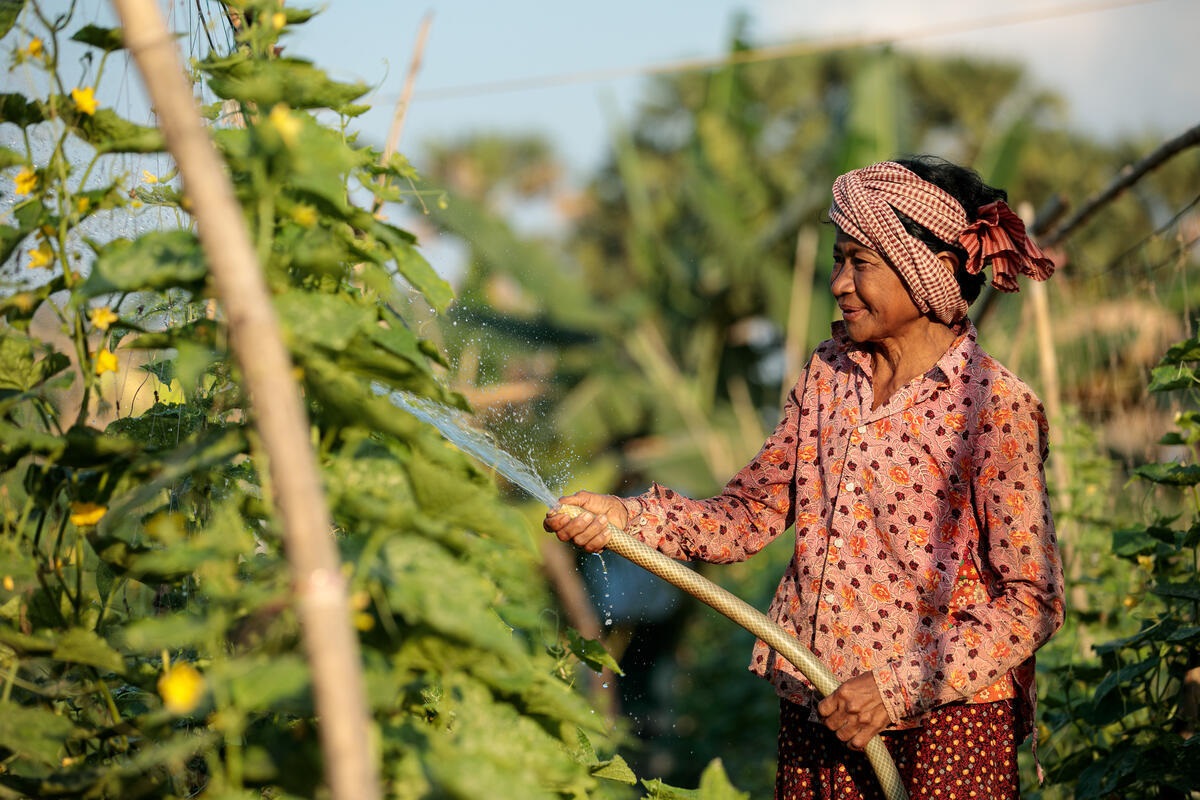
The United Nations World Food Program (WFP) announced on November 8 that it has joined the Global Alliance against Hunger and Poverty as a founding member.
The Global Alliance is an initiative of the Brazilian Presidency of the G20, and aims to better align national and international support to help countries build and implement programs and policy instruments that reduce hunger and poverty. In doing so, it contributes to accelerating actions to achieve Sustainable Development Goals (SDGs) 1 – poverty eradication – and 2 – zero hunger.
The WFP was invited by the Brazilian Presidency of the G20 to participate in the G20 Task Force that created the founding documents of the Global Alliance. The UN Food Agency also worked closely with the Brazilian G20 Presidency and other International Organizations to establish the Policy Basket that is at the heart of the Global Alliance.
“WFP is proud to be a founding member of the Global Alliance and applauds the Brazilian G20 Presidency for highlighting globally the deeply linked issues of poverty, hunger, and malnutrition. We will work closely with partner governments to design and implement programs that combat hunger and strengthen long-term food security, with a strong focus on school meals, nutrition, social protection, and resilience,” said WFP Executive Director Cindy McCain.
For Brazil’s Minister of Development and Social Assistance, Family and Fight against Hunger, Wellington Dias, the Alliance is a practical mechanism that will give the necessary impetus to mobilize existing funds and initiatives. It will better organize them around two principles: a focus on the most vulnerable and the consistent implementation of national policies.
“Only through partnerships and cooperation will we be able to eradicate hunger and poverty on the planet. We are honored to have the World Food Program, a long-standing partner of Brazil, join the Global Alliance. As a founding member, the WFP will play a key role in the success of this initiative and will further advance collective efforts towards SDGs 1 and 2,” said Wellington Dias.
The WFP is also working closely with the Brazilian Presidency of the G20 on a Digital Hub so that the Global Alliance can efficiently put into practice requests for support from governments for the implementation of policies and programs aimed at reducing hunger and poverty.
“The Global Alliance Digital Hub is an innovative effort to help reverse the negative trends around SDGs 1 and 2 in recent years. With it, we hope to accelerate action to achieve the 2030 Agenda,” said Stanlake Samkange, WFP Country Director for Multilateral Partnerships and Programs. “WFP is pleased to be able to offer our technological know-how to advance the transparency, effectiveness, and efficiency of the Global Alliance and to help stakeholders match government requests for support with the relevant knowledge and financial partners.”
 Lecture on the Global Alliance
Lecture on the Global Alliance
On the eve of the WFP’s announcement as a founding member of the Global Alliance, the director of the Center of Excellence against Hunger of WFP in Brazil, Daniel Balaban, gave a lecture on the subject, at the invitation of professors from the Escola Superior de Propaganda e Marketing (ESPM), to 143 students from its São Paulo and Rio de Janeiro units.
“Brazil is a huge country, it’s one of the 10 largest economies in the world and we have something precious: soft power, the right environment for negotiation. In addition, Brazil has a history of fighting hunger and climate change,” he said.
Some examples are Rio ECO 92, in which the country took a leading role, as it was the stage that launched the discussions that resulted in the Millennium Development Goals. And in 2012, at Rio +20, where 193 participating countries began discussions on the Sustainable Development Goals.
“Now, with the launch of the Global Alliance against Hunger and Poverty, the result of work that began in December 2023 and which will be announced at the G20 leaders’ meeting, this is yet another legacy that Brazil is leaving the world, with concrete objectives and actions,” he said.
During his presentation, the students were given an overview of fundamental issues such as the main causes of hunger, the issue of growing inequality in the world, the importance of international negotiating bodies and how Brazil has been a protagonist in this area.




